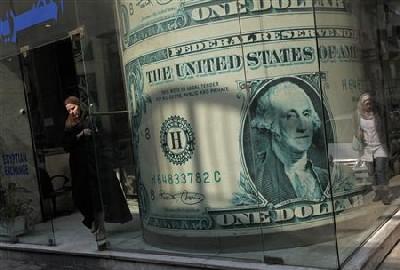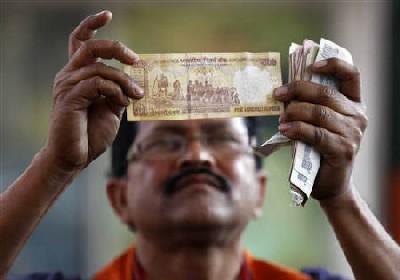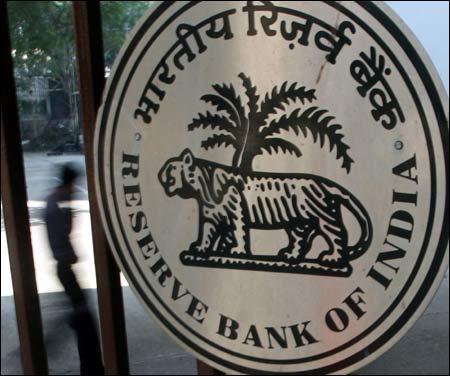When everybody is scurrying for cover as the rupee plunges deeper and deeper everyday – on Thursday, it breached the 54-a-dollar mark intra-day -- ratings agency S&P says the fall in the currency's value is likely to support the profits of about 70 per cent domestic companies rated by it.
Nevertheless leverage will not improve for most companies, notes the S&P report titled Rupee depreciation: Good for company profits, not so for leverage, which was released in Mumbai on Thursday.
"Revenue for companies that export and operate overseas will rise because they will get more rupees for goods and services they sell," said S&P credit analyst Mehul Sukkawala in the report, adding, "companies that link their selling price to global prices can also now command a higher price in the domestic market."
. . .
'Re plunge to cut India Inc's slowdown pains'
Image: Students make a formation of the Indian rupee symbol.Photographs: Reuters
The rupee, which is the worst-hit Asian currency this year, has lost over 18 percent since the beginning of the year and most of this came since August.
While the Reserve Bank is believed to have intervened steathily in November by selling dollars worth over $6 billion, the move has not helped to arrest the fall.
For the ninth day today the rupee fell against the American greenback and hit an intra-day low of 54.32 a dollar.
Such gains will soothe the pain that weak demand -- both in the country as well as globally -- has been inflicting on the domestic companies, notes the report.
. . .
'Re plunge to cut India Inc's slowdown pains'
However, it admits this benefit comes with a cost: debt-servicing requirements will jump, particularly for firms with a high share of foreign currency borrowings.
It further notes that debt servicing and financial leverage of only 30 per cent of the companies it rates here are likely to improve due to the rupee fall.
"We believe the risk is particularly high for companies that have high debt servicing requirements due to significant foreign currency borrowings coming up for repayment in the near term," says Sukkawala.
'Re plunge to cut India Inc's slowdown pains'
"Large information technology companies such as TCS are likely to be the major gainers from the rupee fall because they have strong overseas businesses and very little debt.
At the other end of the spectrum are companies, such as Bharti Airtel which have a large share of foreign currency borrowings that offsets the benefits of better operating performance," notes the report.
However, of the companies S&P rates in Mumbai, only a few have material near-term maturities, the report says adding that it expects these companies to refinance most of their debt maturities through foreign currency borrowings and that most of these companies have adequate or strong liquidity and good domestic banking relationships.
On the effects of the fall on various sectors, the report says the impact will be generally positive for IT, metals and mining, and oil & gas refining and exploration companies; neutral for telecoms and power utilities, and negative for oil marketing, automobile, and forest product companies.





article